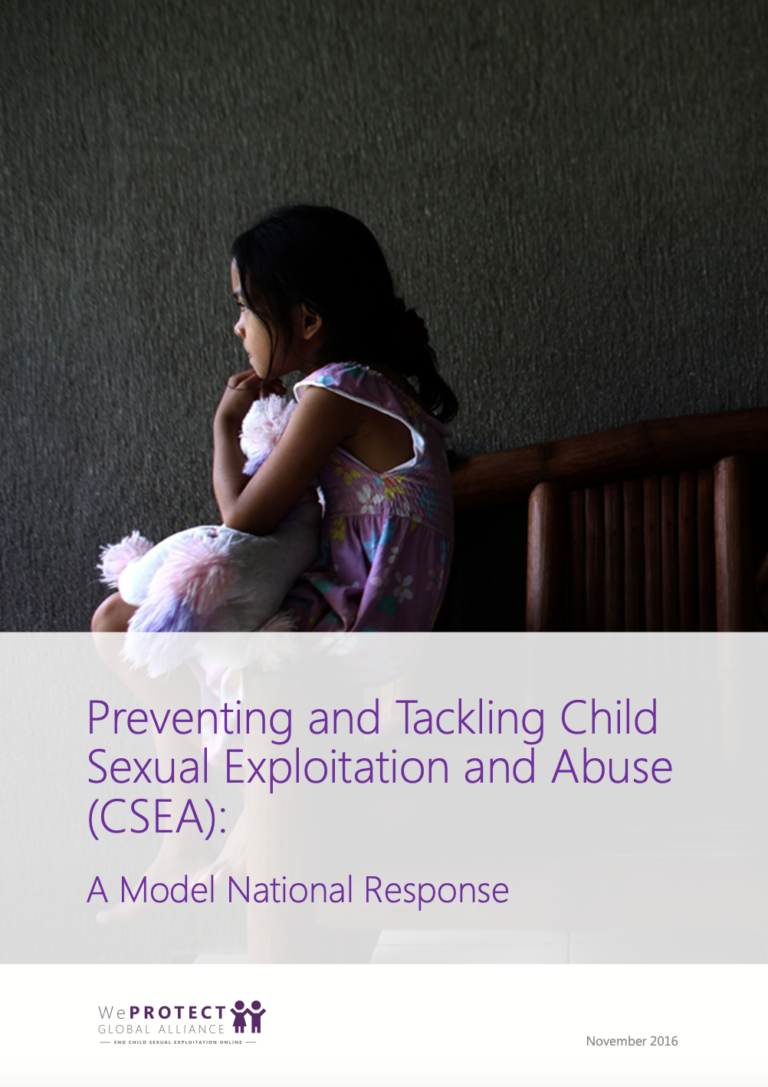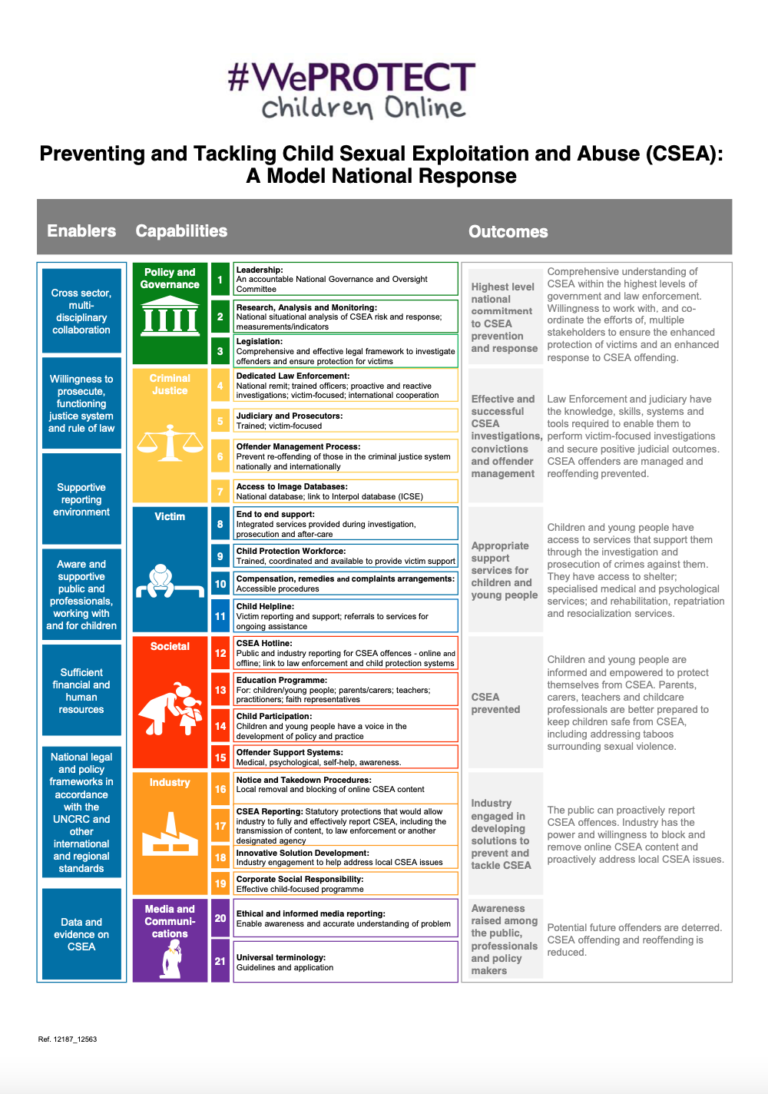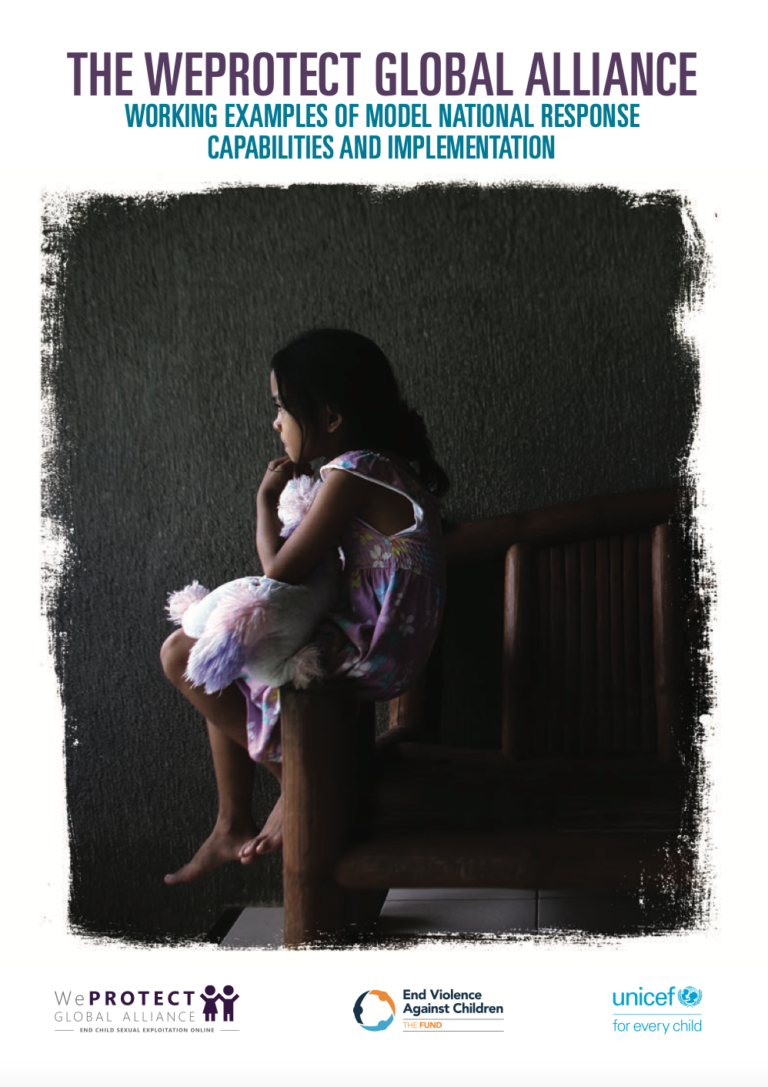At the Abu-Dhabi Summit in 2015, governments and organisations agreed to establish and deliver, in their own countries, a coordinated national response to online child sexual exploitation, guided by the WePROTECT Global Alliance Model National response (MNR). This document provides guidance and support on the MNR to countries and organisations to help them deliver on this commitment. Whilst the Model is focused on helping countries to build their response to online child sexual exploitation, it acknowledges that this cannot be addressed in isolation and a wider set of capabilities to prevent and tackle child sexual exploitation and abuse are required to be in place to ensure a complete national response.
This Model will: enable a country to assess its current response and identify gaps; prioritise national efforts to fill gaps; and enhance international understanding and cooperation .



